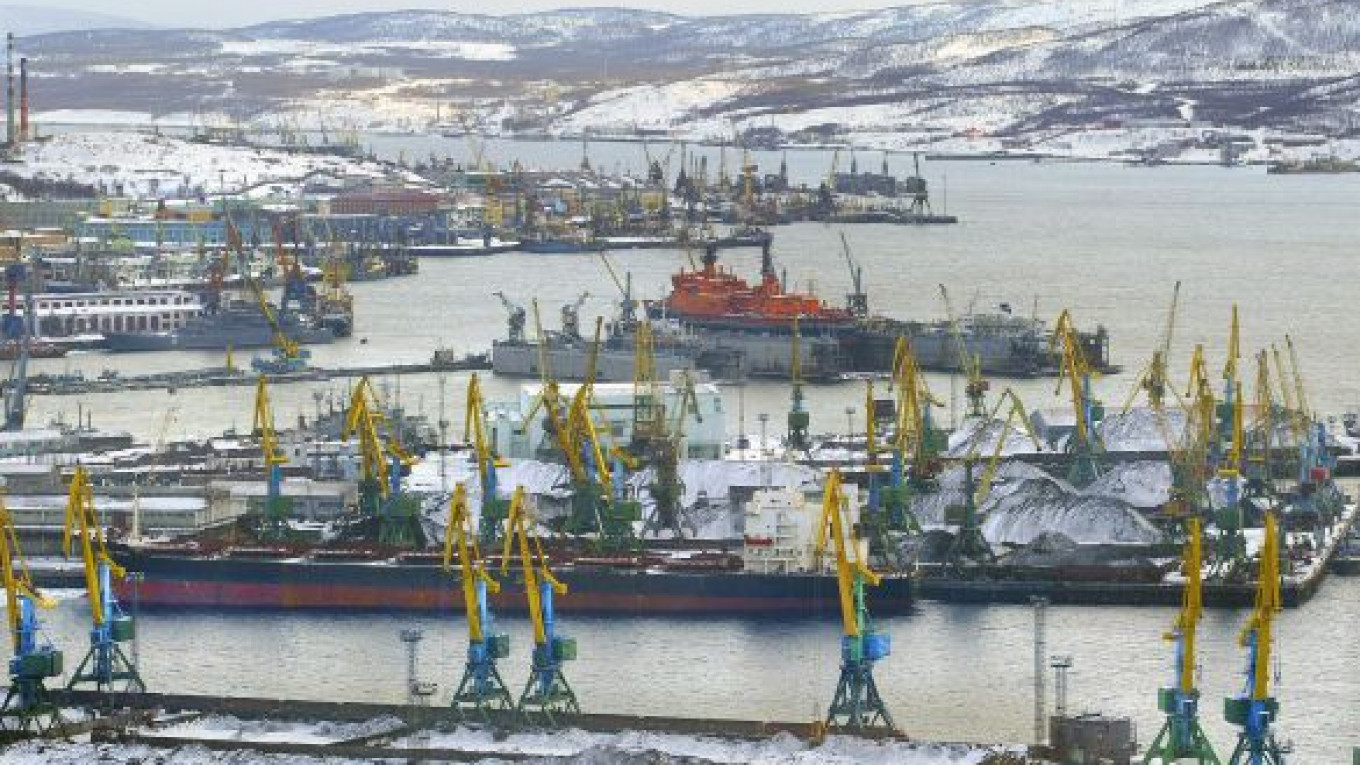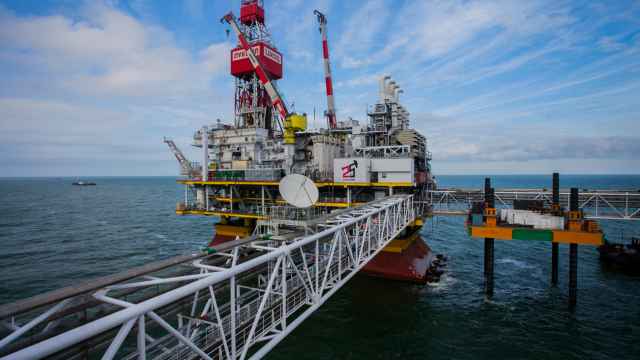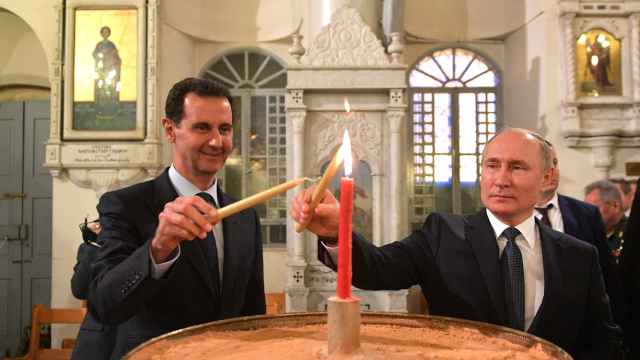SUEK, Russia's largest steam coal miner, took a minority share in the country's biggest Arctic port Murmansk to remain competitive against rival exporters developing a similar-sized cape port on the other side of the bay at Lavna.
The coal company said on its website Wednesday that it bought 24.9 percent of voting shares in the port. Earlier, sources close to the deal said SUEK had taken a minority stake of 24.9 percent, contradicting news reports Tuesday that the coal firm had bought either the whole port or a smaller shareholding.
SUEK has not revealed what it paid for the Murmansk stake, but the Russian press on Tuesday reported a price tag of $260 million.
SUEK is not the only Russian coal exporter looking at investment in Russian ports to move away from more expensive terminals in Latvia and Estonia that are still being used, although as little as possible.
The port was not immediately available for comment.
There is enough port space in the St. Petersburg area, but larger-scale ports would be a cheaper, more efficient option and the government wants investment and job creation in regions like Murmansk, industry sources said.
"If you buy into a port and can get lower port charges, you could recoup what you paid over several years. With cash costs of $90 a ton, every dollar counts," one senior industry source said.
"I don't think that they've [SUEK] bought all of Murmansk port — they should, it makes sense, but there are other companies also looking, involved," another said.
Prompt thermal coal into Europe is currently trading at about $96.00 a ton delivered, leaving Russian exporters an extremely slim margin, thanks to the plunge in freight rates.
The 12-million-tons-a-year Murmansk Commercial Sea Port, on the Barents Sea in the Arctic Circle, is an ice-free, key export point for coal to Europe and may have potential in the longer term for shipments to China.
It is controlled by a group of private investors, while the Russian government retains a 25.5 percent stake.
The port is on the government's 2012 privatization program. The state's shareholding will be auctioned, but the timing has not been announced.
Rival coal exporters Kuzbassrazrezugol and the diverse SDS Group owned by Mikhail Fedyayev and Vladimir Gridin, who are involved in the development of the Lavna port, are expected to shift all or most of their coal from Latvian and Estonian ports to Lavna and other Russian terminals.
Lavna exporters will be able to set their own port charges low because they own the port, industry sources said.
Rail tariffs have been set lower than Baltic ports for several years on routes to Russia and this trend is likely to continue, although tariffs have crept steadily higher on average, they said.
A Message from The Moscow Times:
Dear readers,
We are facing unprecedented challenges. Russia's Prosecutor General's Office has designated The Moscow Times as an "undesirable" organization, criminalizing our work and putting our staff at risk of prosecution. This follows our earlier unjust labeling as a "foreign agent."
These actions are direct attempts to silence independent journalism in Russia. The authorities claim our work "discredits the decisions of the Russian leadership." We see things differently: we strive to provide accurate, unbiased reporting on Russia.
We, the journalists of The Moscow Times, refuse to be silenced. But to continue our work, we need your help.
Your support, no matter how small, makes a world of difference. If you can, please support us monthly starting from just $2. It's quick to set up, and every contribution makes a significant impact.
By supporting The Moscow Times, you're defending open, independent journalism in the face of repression. Thank you for standing with us.
Remind me later.






